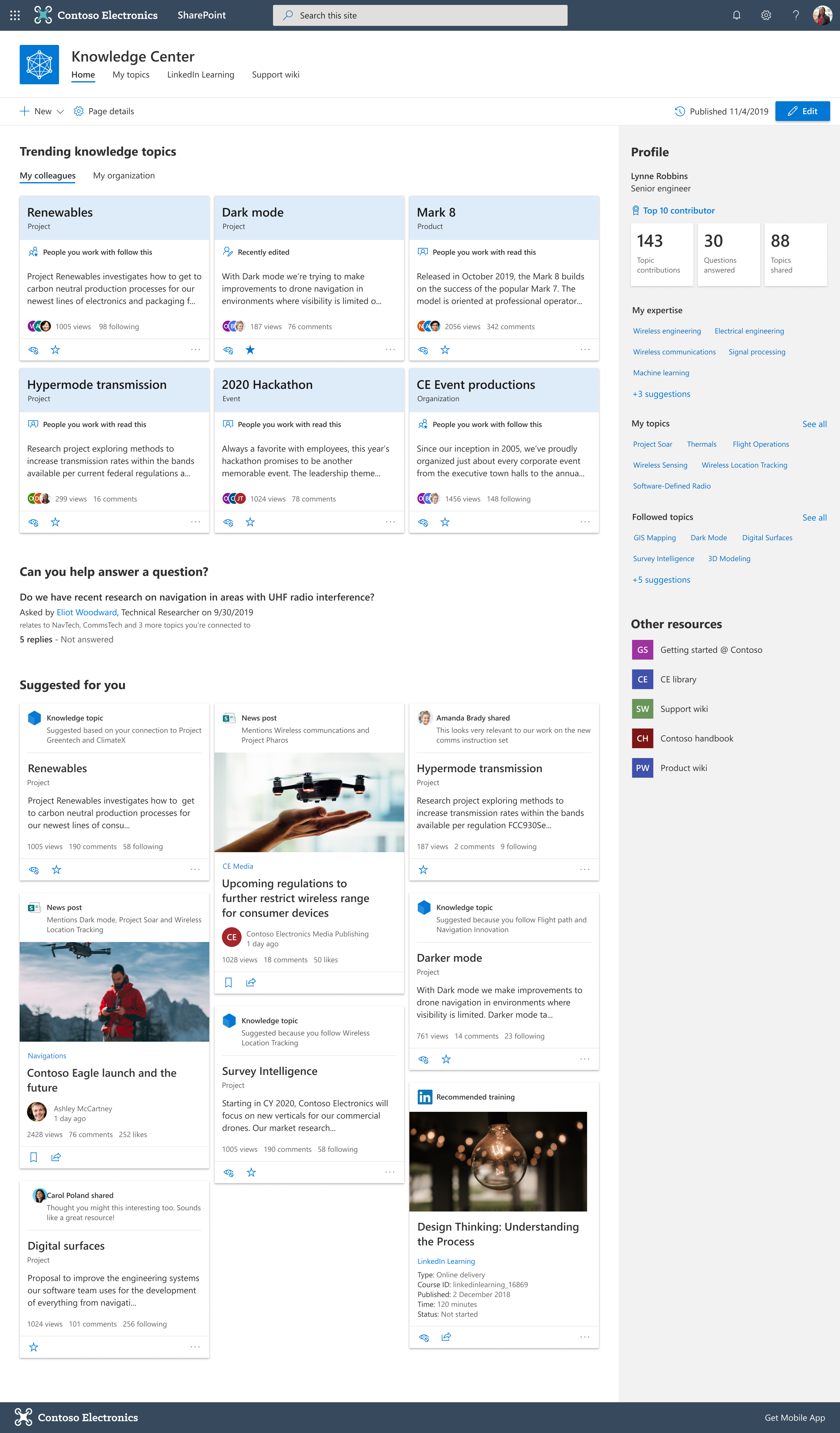Microsoft Project Cortex AI Tools for Remote Teams
Enterprise AI knowledge management that automatically organizes content into intelligent networks for distributed teams requiring seamless access to organizational expertise across global operations.
Microsoft Project Cortex AI Tools for Remote Teams represents Microsoft's enterprise-grade knowledge management solution designed to transform how distributed organizations access and utilize institutional knowledge through AI-powered content organization and discovery.
Market Position & Maturity
Market Standing
Microsoft's position as a leading enterprise software provider gives Project Cortex significant competitive advantages in market penetration and customer trust. The platform builds upon SharePoint's established user base and Microsoft 365's widespread enterprise adoption, providing a foundation for knowledge management enhancement rather than requiring complete platform replacement[2][4].
Company Maturity
Microsoft's enterprise software maturity provides strong stability indicators for Project Cortex deployment. The company's decades of experience in enterprise software development, global support infrastructure, and financial stability offer buyers confidence in long-term platform availability and support[2].
Growth Trajectory
The evolution from Project Cortex to SharePoint Syntex represents Microsoft's strategic refinement of AI-powered content services, incorporating customer feedback and market learning into a more focused knowledge management offering[2].
Industry Recognition
Microsoft's enterprise AI capabilities receive recognition from major analyst firms, though specific Project Cortex/SharePoint Syntex positioning requires current analyst report validation[2].
Strategic Partnerships
Microsoft's ecosystem partnerships with system integrators, consulting firms, and technology vendors provide implementation support and market reach for Project Cortex deployments[2].
Longevity Assessment
Microsoft's financial stability, market position, and strategic commitment to AI-powered productivity tools provide strong indicators for Project Cortex's long-term viability. The platform's integration within Microsoft 365 reduces standalone product risks while ensuring continued development as part of Microsoft's core productivity strategy[2][4].
Proof of Capabilities
Customer Evidence
Mott MacDonald's comprehensive implementation serves as the primary validation of Project Cortex's enterprise capabilities, showcasing successful deployment across 16,000 employees in 50 countries[10][11].
Quantified Outcomes
The Mott MacDonald case study reports significant ROI through reduced search time and improved knowledge reuse, though specific percentage improvements require validation[10][11].
Case Study Analysis
Mott MacDonald's phased implementation approach provides a blueprint for enterprise deployment, beginning with a 3-month pilot program before proceeding to global rollout[10][11].
Market Validation
The successful deployment across Mott MacDonald's global operations validates Project Cortex's capability to handle enterprise-scale knowledge management requirements in distributed organizations[10][11].
Competitive Wins
Project Cortex's deep Microsoft 365 integration provides competitive advantages for organizations already invested in Microsoft's productivity ecosystem, offering knowledge management enhancement without requiring platform replacement[2][4].
Reference Customers
While Mott MacDonald represents the primary documented case study, the platform's integration within Microsoft 365 suggests broader enterprise adoption among Microsoft's substantial customer base[10][11].
AI Technology
The system leverages Microsoft's cognitive services to perform content analysis, entity extraction, and topic modeling across diverse content types including documents, emails, conversations, and multimedia files[1][2][4].
Architecture
Project Cortex operates as a cloud-native solution integrated within the Microsoft 365 ecosystem, utilizing Azure infrastructure for scalable processing and storage[2][4].
Primary Competitors
Atlassian/Rovo represents a primary competitor with strategic alignment capabilities connecting work to organizational goals, though with less comprehensive AI-powered content analysis[9].
Competitive Advantages
Native Microsoft 365 integration provides seamless user experience unavailable in standalone solutions, delivering knowledge discovery within existing workflows rather than requiring separate application usage[2][4].
Market Positioning
Enterprise knowledge management focus targets large organizations with complex content management needs rather than competing in the broader project management or collaboration software markets[2][4][10].
Win/Loss Scenarios
Project Cortex wins in scenarios involving large Microsoft 365 deployments requiring automated knowledge organization and cross-geographic collaboration[2][4][10].
Key Features

Pros & Cons
Use Cases
Integrations
Pricing
Featured In Articles
Explore AI project management software for remote teams. Compare vendors, features, and ROI for informed decisions.
How We Researched This Guide
About This Guide: This comprehensive analysis is based on extensive competitive intelligence and real-world implementation data from leading AI vendors. StayModern updates this guide quarterly to reflect market developments and vendor performance changes.
19+ verified sources per analysis including official documentation, customer reviews, analyst reports, and industry publications.
- • Vendor documentation & whitepapers
- • Customer testimonials & case studies
- • Third-party analyst assessments
- • Industry benchmarking reports
Standardized assessment framework across 8 key dimensions for objective comparison.
- • Technology capabilities & architecture
- • Market position & customer evidence
- • Implementation experience & support
- • Pricing value & competitive position
Research is refreshed every 90 days to capture market changes and new vendor capabilities.
- • New product releases & features
- • Market positioning changes
- • Customer feedback integration
- • Competitive landscape shifts
Every claim is source-linked with direct citations to original materials for verification.
- • Clickable citation links
- • Original source attribution
- • Date stamps for currency
- • Quality score validation
Analysis follows systematic research protocols with consistent evaluation frameworks.
- • Standardized assessment criteria
- • Multi-source verification process
- • Consistent evaluation methodology
- • Quality assurance protocols
Buyer-focused analysis with transparent methodology and factual accuracy commitment.
- • Objective comparative analysis
- • Transparent research methodology
- • Factual accuracy commitment
- • Continuous quality improvement
Quality Commitment: If you find any inaccuracies in our analysis on this page, please contact us at research@staymodern.ai. We're committed to maintaining the highest standards of research integrity and will investigate and correct any issues promptly.